During the summer holidays, schoolchildren from the Udora village Politovo took part in the ecological and local lore expedition along the route Politovo – Pyolyaninstan – Politovo, organized by the teacher and local historian Dina Ivanovna Chuprova with the support of the Model River Mezen project.
The expedition’s primary objective was to collect the information about the history of the place Pyolyaninstan and fishing traditions on the upper reaches of the Mezen. Besides, it was assumed, that the experience gained during this journey and the collected materials would help to develop a tourist route to this place, where the residents of several Udora villages had been engaged in the traditional occupation since olden times.
Preliminary, the pupils got familiar with the literary sources about Pyolyaninstan and, in the first instance, with the novel of Yury Vasyutov “Shyr kyvto kato” (“A mouse is swimming and dancing on the waves”), collected the information among their fellow-villagers – residents of Politovo, and during the trip talked to the people they met directly in the fishing camp. Such informants as Politovo resident Alexandr Andreevich Loginov and old-timer Mikhail Fyodorovich Loginov born in this land and now living in Usogorsk managed to tell many interesting things about the history of the place, family plots, fishing traditions on the Yovva, and the fishing camp with which a lot was associated in their life and the life of their fathers and grandfathers.
The expedition participants tell: “Pyolyaninstan is not reflected on the map, but it exists and it’s still inhabited by the people involved in the ancient as the world occupations – hunting and fishing. It is a cherished dream of many Udora residents to make it into Pyolyaninstan and live there for some time. But what kind of place is it? As is known, the Mezen makes a 577 km “loop” on the territory of the Udora district figuratively called “Udora necklace”. In the loop throat the distance between the banks of the lower river area (near the villages Politovo and Patrakovo) and its upper area reaches the lowest value of 27 km. Due to the lack of financial resources, Politovo fishermen are still getting to their family plots using their grandfathers’ 28 km paths…”
The expedition participants reached Pyolyaninstan by other way – the road connecting Verkhnemezensk with the forest village Barma. In the 70-80s of the last century this road had been used for wood transportation from the Barma logging depot. Currently, a 47 km road is broken to such extent, that few of the local residents use it. Thanks to an experienced driver and guide Alexandr Loginov, accompanying the group, they managed to reach Pyolyaninstan without significant problems, though it took a considerable amount of time. The pupils learned from Alexandr Andreevich, the son of a well-known fishing master Andrey Ivanovich Loginov (Ivan Oney), who had been the head of the fishing brigade in the 70s, and from other locals, that Pyolyaninstan had been founded by the brothers Dorofey and Mikit. In the 19th century they built the first family houses here. In 1961, the place consisted of 6 houses, and today there are sixteen of them – including the new ones. By the way, in Pyolyaninstan the expedition participants Alexey Mikhaylov and Nikita Trofimov got familiar with the houses built by their grandfathers and great-grandfathers and even took photos near them.
The expedition participants have collected the information about the history of the fishing camp, photographed and described the old family homes, as well as the auxiliary constructions of the fishermen – barns and ice cellars for storage of the caught fish and game, and learned about the history and owners of each of them. They have also made a description of the new constructions – the houses built here in the second half of the past century and already in the beginning of the current century. Among those – a former sovkhoz house for the hay producers living here during the hay making time. An interesting part of the group work was collecting of the information about the toponimy of the upper reaches of the Mezen.
Currently, the schoolchildren jointly with their teacher are engaged in the processing of the collected information. They are preparing a report and presentation based on the material obtained during the expedition, as well as the description of a future tourist route from Usogorsk to Pyolyaninstan.
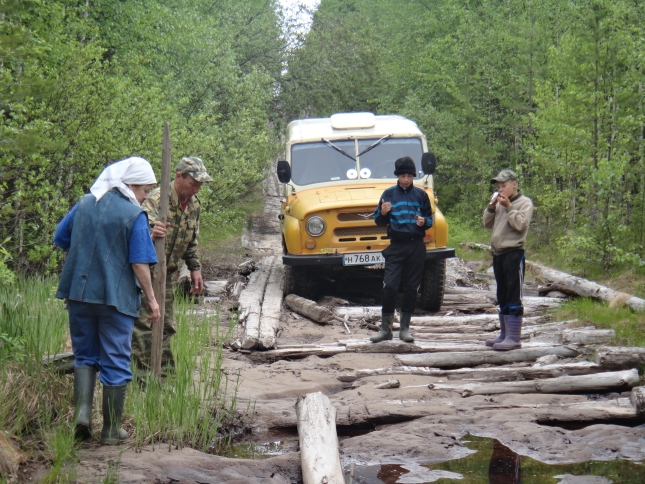

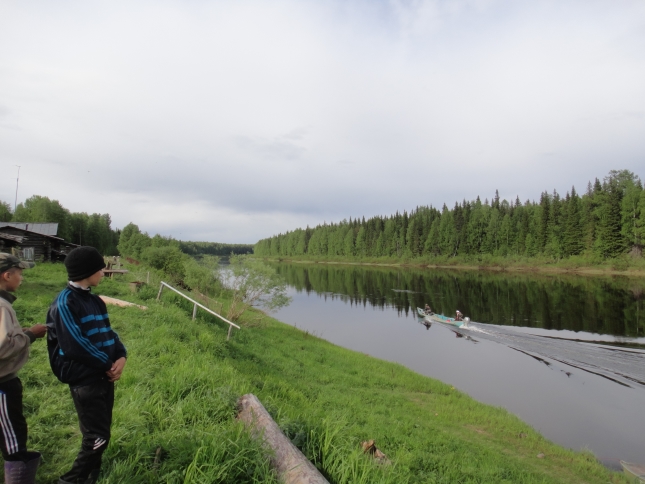
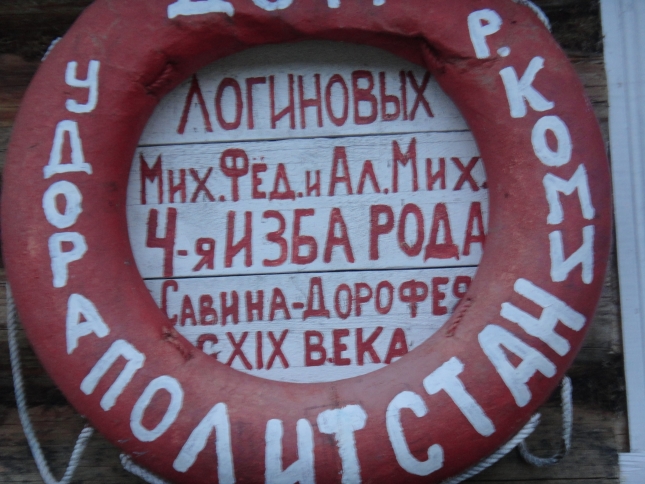
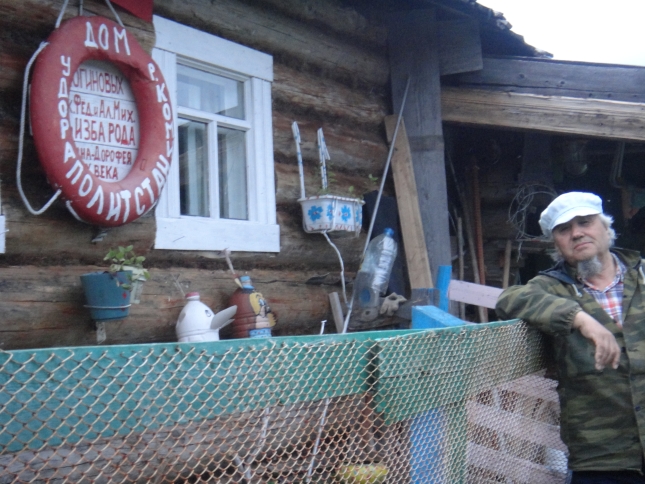
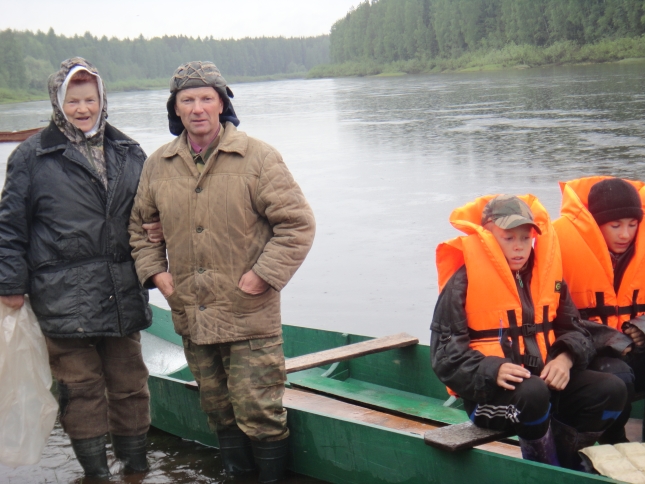
Valentina Semyashkina
Translated by Irina Sokolova






